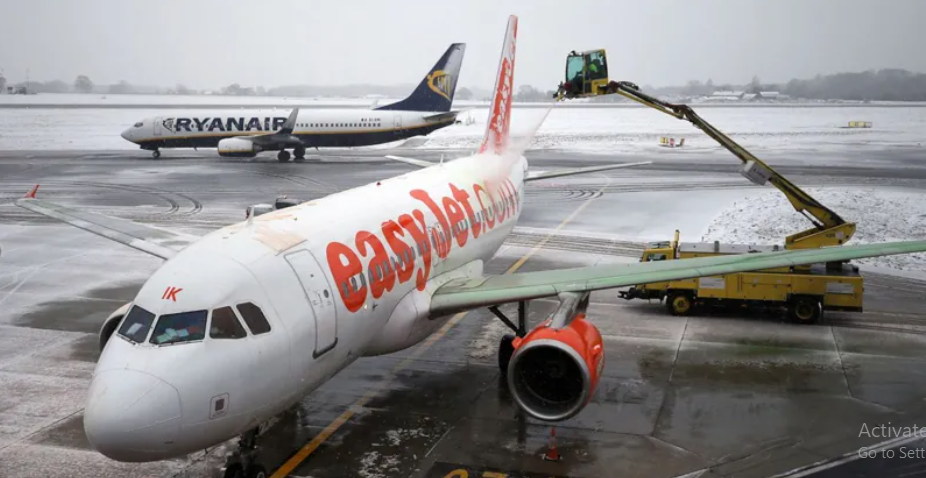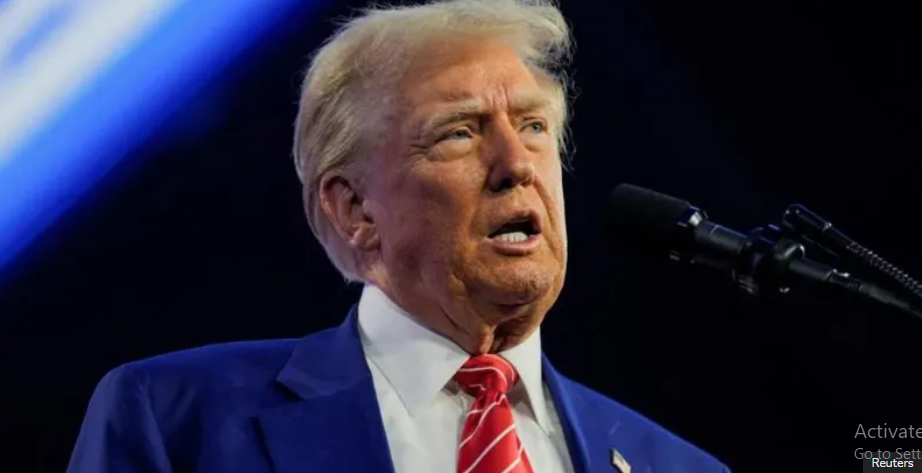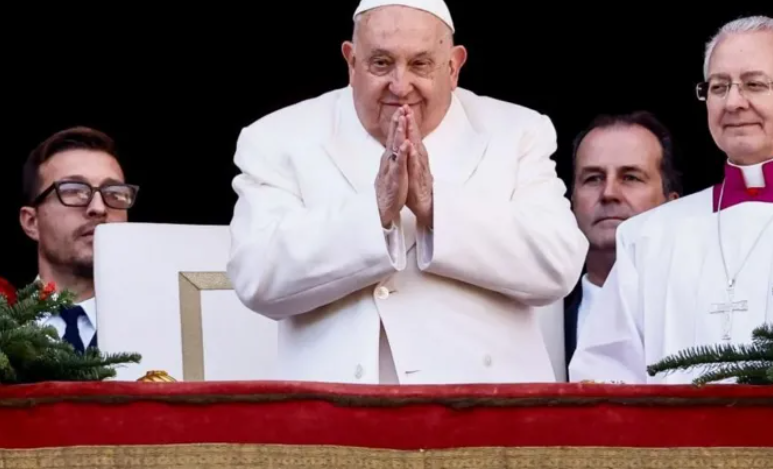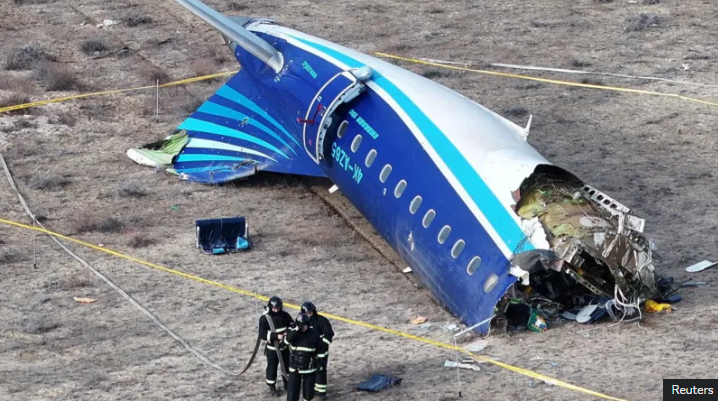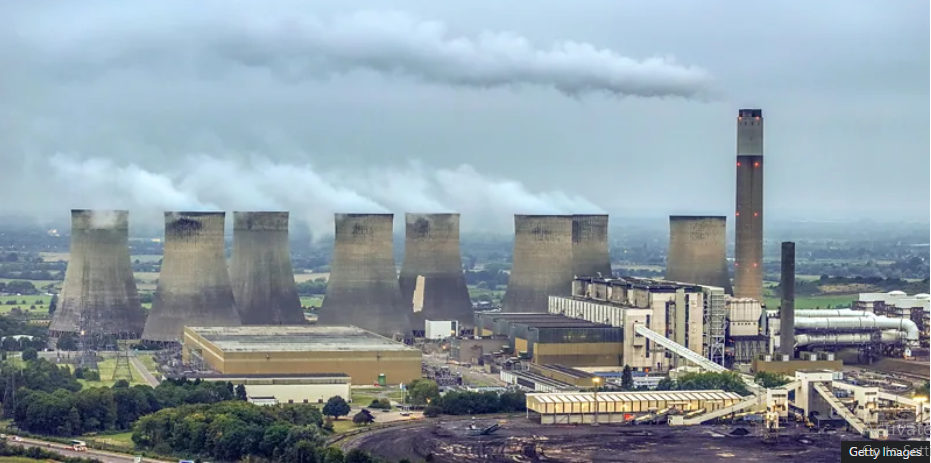Residents said there was no warning before the strike

At least 21 people have been killed and eight others injured in a rare Israeli air strike in northern Lebanon, the Lebanese health ministry says.
The strike hit a residential building in Aitou, a predominantly Christian village far from the areas where the Israeli military has carried out thousands of strikes targeting the armed Shia Islamist group Hezbollah.
Residents said a family recently displaced by the war had been living there.
The Israeli military did not immediately comment on the reports. But it came as Israeli Prime Minister Benjamin Netanyahu vowed to “continue to strike Hezbollah without mercy everywhere in Lebanon – including Beirut”.
“Everything is according to operational considerations. We have proven this recently and we will continue to prove it in the coming days as well,” he added.
He was speaking during a visit to a military base in northern Israel where a drone launched by the Iran-backed group killed four Israeli soldiers and wounded dozens on Sunday night.
The military said it was investigating how the drone evaded its sophisticated air defence systems and hit the Golani Brigade training facility near the town of Binyamina.
It was one of Hezbollah’s deadliest attacks on Israel in over a year of cross-border fighting sparked by the war in Gaza.
Hezbollah said it was a response to deadly Israeli attacks in Lebanon, which the country’s health ministry says has killed almost 1,700 people over the past month.
Most of the Israeli air strikes over the past week have struck in the majority Shia south and the Bekaa Valley in the east – areas where Hezbollah is strong.
Aitou, a Maronite Christian community located in the mountains near the north-western coastal city of Tripoli, was not a place which would have expected to be attacked.
“Oh mother Mary,” gasped one man as he walked through the devastation wrought on the village.
In the smoke and dust, bodies could be seen on the ground.
Residents said there was no warning, just a single, massive blast.
However, they also said several families displaced by the war in the south had recently moved to Aitou, and that the house which was hit had been rented out to new people just two weeks ago.
Reuters A soldier inspects the aftermath of the strike, with broken vehicles and piles of dusty detritus behind him.Reuters
Rescue workers attended the scene of the strike, which was covered in dust and debris
A Lebanese security source told AFP news agency that the building was “targeted shortly after a man had arrived in a car”.
The Lebanese health ministry said it was carrying out DNA tests to determine the identities of the remains recovered by first responders at the scene.
The main focus of Israel’s military operations has been in the east, the suburbs of Beirut and the south – where there have been incidents involving UN peacekeepers.
On Monday, a spokesperson for the UN Interim Force in Lebanon (Unifil) said its peacekeepers in southern Lebanon would not move from any positions, again defying calls by Israel to withdraw.
The UN Security Council has expressed strong concern over some UN troops being injured during the Israeli military’s offensive against Hezbollah.
Also on Monday, the Israeli military said a strike in the southern Nabatieh area had killed the commander of the anti-tank unit of Hezbollah’s elite Radwan Force.
Hezbollah has not commented on the report.
The military also said it had struck Hezbollah launchers used to fire a number of rockets into central and northern Israel on Monday.
Most of the rockets were intercepted or fell in open areas, according to the military.
One woman was lightly injured by a barrage of 15 rockets that were fired towards the northern town of Karmiel.
Israeli police also said debris from an interception fell in the Holon area, south of Tel Aviv, without causing any injuries or damage.
The Israeli military said Hezbollah had fired around 115 projectiles into Israel on Monday.
Early on Tuesday, the Israel Defense Forces (IDF) said Israel’s air force had over the past day struck “more than 200 Hezbollah terrorist targets in southern Lebanon and deep within Lebanon, including terrorist cells, anti-tank missile posts, and surface-to-surface missile launchers”, in coordination with ground troops.
In southern Lebanon, it said it eliminated “dozens of terrorists”, dismantled Hezbollah infrastructure and located “vast quantities” of weapons and equipment.





